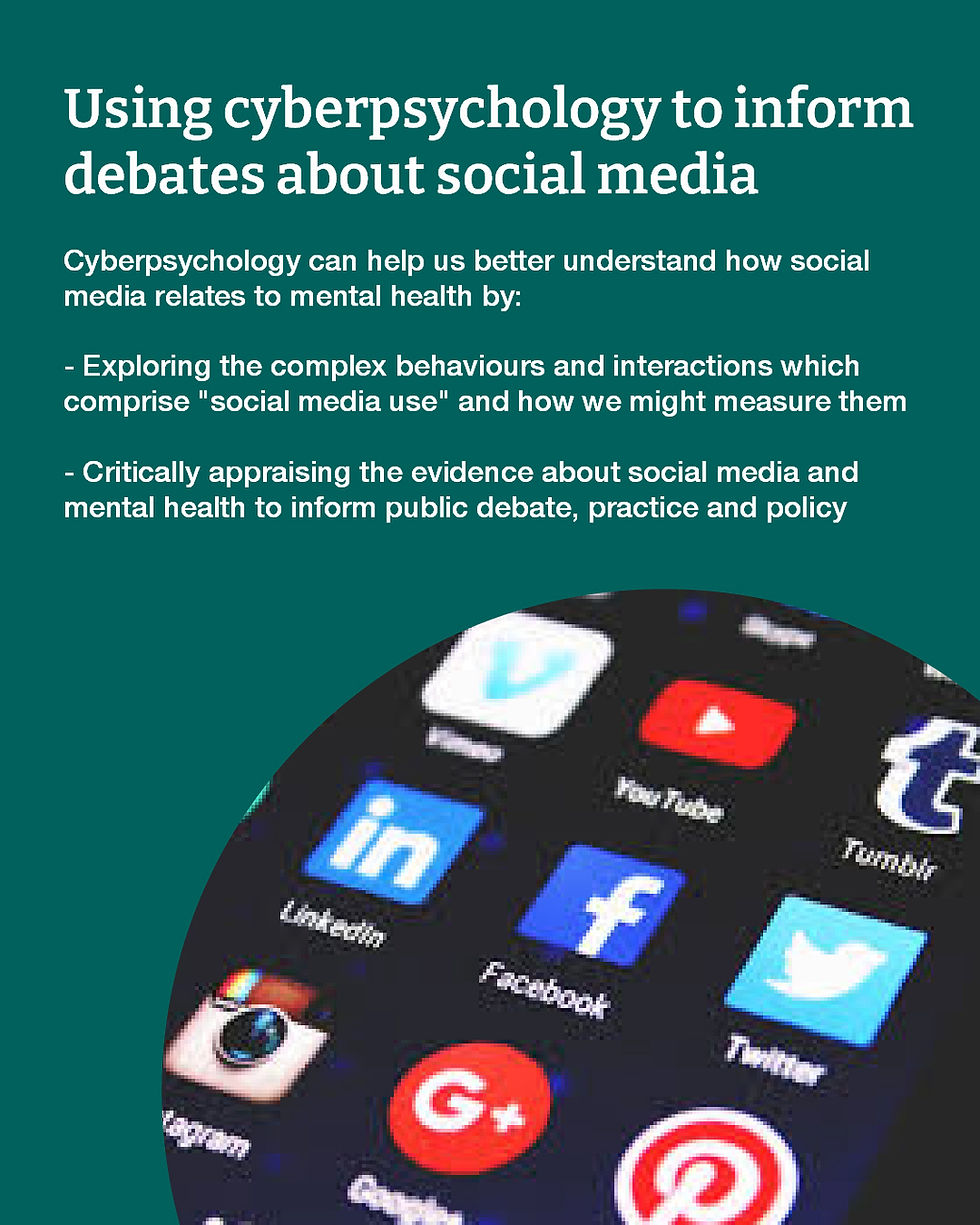Is technology good or bad? Hang on...let's not do this!
- LindaKKaye

- Jun 12, 2020
- 3 min read
I inadvertently entered into cyberpsychology back in 2007 when I registered for my PhD. This was broadly exploring the motivations, experiences and outcomes of playing videogames. Back then, I didn’t really know that “cyberpsychology” existed and hadn’t considered how my own research was fitting into something broader. It didn’t take long to realise that the area I had selected was consumed by dichotomies. One of the main debates was the notion of “do video games make us aggressive?” This issue really frustrated me for a number of reasons. Firstly, from a common-sense perspective, for most people gaming is a leisure activity and we know that leisure brings benefits, right? So why should gaming be different? Second, not all games include violent content, so conceptually there is not a solid foundation to make a claim that “all games are bad” particularly in how they relate to aggression outcomes. Third, that the mainstream debates at this time were dichotomised into two main camps:
· Violent games and aggression = bad
· Serious games for health and education = good
I was practically screaming; “Where is everything in between?!” And more importantly, why did such a stark contrast exist in the first place? At this point, I could see I was destined to be in a constant upstream battle to address this.
Thirteen years later I am still consumed by these issues! The main reason for this is due to the fact that creating dichotomies is entirely unhelpful. But this isn’t just an issue for the gaming literature, but has now developed into a wider rhetoric in many areas relating to cyberpsychology, which you will be pleased to hear, is a sub-discipline I now know MUCH more about! 😉
Something I am careful about is to avoid making claims that I am “pro gaming” or any other term which alludes to taking an exclusive positive perspective on a given technology. Yes it is true that I am an optimist and that may inadvertently influence my philosophical stances in my work, but this does not preclude me understanding that there areas of concern. Let’s take social media as an example.
There are some who claim that social media is harmful for well-being and others who claim it is beneficial. It may be a shock to some people to know that these can actually occur concurrently when teasing out the nuances of the issue. When drilling down to what or how these effects can occur, there are a plethora of sub-issues which can be identified. Some broad examples are:
What?- what content people are being exposed to. If two people are using the same social media platform for the same amount of time, but seeing different content, this may bring out two entirely different types of outcomes. In some cases, some of this content could be harmful and this, of course is a pertinent area for concern.
How?- how much people are using. Irrespective of content, the amount people are using will be likely to have an impact on any well-being outcomes.
Why?- irrespective of what the content or actual usage is, people use social media for different reasons. E.g., for some people, this may be the sole way of fulfilling social needs, and for others it may be a helpful supplement.
In general, the technology use and effects field is riddled with issues. There is a lack of conceptual synthesis in understanding “technology use”, and a wide range of methodological concerns in attempting to measure anything related to technology use. These won’t be solved overnight but it will require effort to acknowledge that everyone who is working in this field is basically attempting to understand the same experience, but perhaps just a different aspect of this.
If we are to get anywhere with progressing debates surrounding technology use and its effects, then we need to avoid dichotomising the issues. Instead we should collectively consider the extent to which the “what”, the “how” and the “why” are important considerations to understanding the phenomena as a whole.



Comments